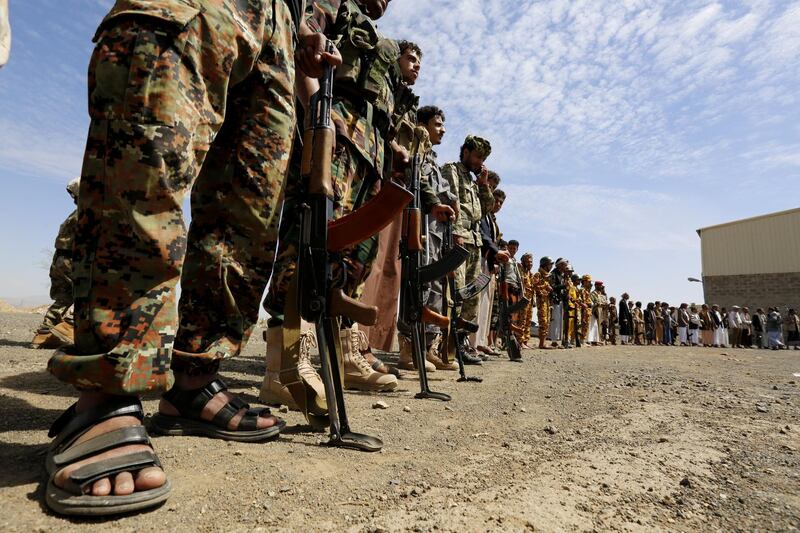When Michael Aron and Martin Griffiths assumed their new roles with a mandate to establish peace in Yemen, they inherited a tough legacy. They have been propelled into a conflict that continues to deliver complex actions and consequences, a fact underscored by Emirati forces swiftly intercepting a drone on Wednesday that appeared to be aimed at coalition units.
Earlier this month, Mr Aron, the newly appointed British ambassador to Yemen, told The National that conditions are ripe for a diplomatic breakthrough based on dialogue and a cessation of hostilities. Mr Griffiths, the new UN special envoy to Yemen, who recently met Houthi rebels, echoed Mr Aron's optimism. As The National reported, Mr Griffiths plans to instigate a comprehensive peace plan within two months. The Saudi-led coalition champions a peaceful resolution in Yemen. Together, the kingdom and the UAE recently donated $1bn towards the country's humanitarian crisis. But amid the antagonism of bloodthirsty Houthis and the unremitting malevolence of their Iranian backers, a peace plan of the kind envisaged by Mr Aron and Mr Griffiths looks remote.
How can a resolution be enacted while Houthi aggression continues? The group has been responsible for more than 100 intercepted missiles launched at Saudi Arabia, while failing the Yemeni people in every aspect of governance. Last week Riyadh’s defence systems intercepted two drones supplied to the rebels by Iran. US ambassador to the UN Nikki Haley criticised Tehran at the UN Security Council on Tuesday. Such is its influence within Yemen that the airport in Sanaa was being used as a drone launchpad. Saudi Arabia’s response to the provocation has been to take the matter to the UN, but the patience of the coalition is running thin. This week, its spokesman Colonel Turki Al Malki said: “If the Houthis continue targeting industrial or residential facilities, the response will be hard and painful.” The US and UK agree that no long-lasting resolution can arise until Iran ends its meddling and violation of the arms embargo imposed by the UN Security Council. Given the Iranian regime’s ongoing treacherous interference in Syria, Lebanon and Iraq, there is no sign of it modifying its behaviour.
Certainly, the Houthis are fighting to retain any kind of foothold. As we reported earlier this month, the Yemeni army has completely liberated the coastal city of Midi from rebel control. After entering the war at the request of Yemen’s internationally recognised government in 2015, the Saudi-led coalition has helped pro-government forces retake much of the country. The Houthis, kettled mostly in Yemen's capital, have resorted to striking Saudi Arabia with drones and missiles. Hopes to quickly resolve the conflict are welcome. But there can be no negotiation with terrorists and any solution must include ways to curtail Tehran's nefarious aspirations.





